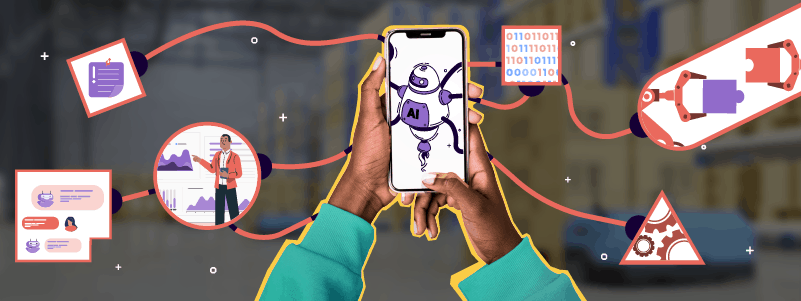Manual business processes are time consuming.
This time can be put to better use, and employees can be made to focus on more important tasks at hand if these processes are automated.
Now, process automation helps businesses accomplish this.
However, many processes are not straightforward and they need to imitate human ways of working and thinking.
This is the role of Artificial Intelligence in business process automation.
AI has penetrated every corner of society.
Technology like Alexa, Internet of Things, smart homes, smart meters, SERPs, various web portals, and more, all use AI to better serve their consumers.
Artificial Intelligence has also entered multiple sectors ranging from social media, healthcare, automotives, utilities, finance and data engineering.
Despite its potential threats, the world is gravitating towards the use of more sophisticated machines and technologies – those that mimic or at least attempt to mimic human consciousness.
Isaac Asimov, in his treatise called “The three laws of Robotics” enumerates ways and laws by which humanity can protect itself by the potential possibility of robots evolving into autonomous beings that can function without the intervention and control of people.
The three laws devised by science fiction author Isaac Asimov are:
- A robot may not injure a human being or, through inaction, allow a human being to come to harm
- A robot must obey the orders given it by human beings except where such orders would conflict with the First Law
- A robot must protect its own existence as long as such protection does not conflict with the First or Second Laws
With the potential of AI going rogue lurking around the horizon, and various measures being made to curb this possibility, businesses, scientists and researchers continue to make strides in the application of AI.
Business process automation (BPA) is one of these myriad applications.
With respect to BPA, AI is essentially enhancing the already abundant value inherent in automated processes - that of time and cost savings.
In this instance, the main advantage of AI is in its ability to read data akin to humans.
Therefore, in business processes, huge volumes of data such as forms, documents and other information can be processed through an AI enabled business process.
Another very groundbreaking contribution of AI in BPA is in its ability to actually make bots more functional and fluid than they would normally be if they were merely based on just process automation.
Bots and AI systems work hand in hand to deliver a seamless experience.
The most crucial aspect of AI is its ability to actually analyse data, thereby minimizing a lot of effort that goes into a myriad of business processes even if they have been normally automated.









